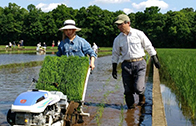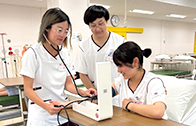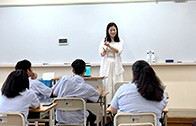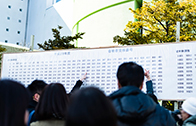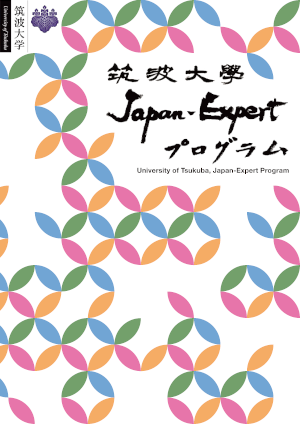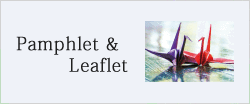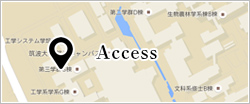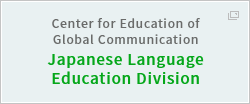The University of Tsukuba has established the Japan-Expert (bachelor degree) Program to train international students who possess a Japanese outlook to further Japan’s culture and society, and hope to find employment at relevant companies in Japan or in their own countries.
Having our university selected for the Top Global University Project by the Ministry of Education, Culture, Sports, Science and Technology (MEXT) in Japan was the impetus for putting this program together. Four courses of study have been established―Agricultural Science, Healthcare, Art and Design, and Japanese Language Teacher Training. Each course is designed for international students interested in Japan, aimed to provide them with the expertise and critical thinking skills they need in Japanese to detect and solve local and global issues related to their respective fields. This includes acquiring specializations in agriculture, healthcare, Japanese art or Japanese-language teaching after acquiring advanced Japanese-language skills and understanding Japan’s culture and society.
We have expanded opportunities to take the university entrance examination for this program to students unable to do so up to now because of their lack of Japanese-language skills by easing the Japanese-language requirement and focusing on Japanese-language training for half a year after enrollment. We look forward to receiving applications from people who want to serve as intermediaries between their home countries and Japan.
Program Outline Introduction Video
https://youtu.be/Dd8YXl-vNRg?si=tZ-4fZe1VhtV__3C
Distinctive Features of the Japan Expert Program
Acquiring specializations in four courses
The Japan Expert Program offers four special courses, which are Agricultural Science, Healthcare, Art and Design, and Japanese Language Teacher Training to develop expertise of international students. Normally, most of the bachelor degree programs in Japan require applicants to pass the Japanese Language Proficiency Test (JLPT) competence level of N1. However, this program accepts students who have JLPT competence level of N3 or higher (i.e., N2 or above for applicants of the Japanese Language Teachers Training Course).
| Course(School/College) | Bachelor degree | Japanese-Language Proficiency Test competence level |
|---|---|---|
| Agricultural Science Course (College of Agro-Biological Resource Science, School of Life and Environmental Sciences) |
Bachelor of Agricultural Science | N3 or above |
| Healthcare Course (College of Nursing, School of Medical and Medical Sciences) |
Bachelor of Science in Healthcare | N3 or above |
| Japanese Art and Design Course (School of Art and Design) |
Bachelor of Art and Design | N3 or above |
| Japanese Language Teacher Training Course (College of Japanese Language and Culture, School of Humanities Culture) |
Bachelor of Arts in Japanese Language Education | N2 or above |
After entering the program, we provide intensive Japanese language courses for the first six months before taking up your major subjects. Internship is considered a required subject in the curriculum for the program intends for students to apply their acquired expertise and critical thinking skills in the real world.
Intensive Japanese Language Instruction
Japanese language classes are conducted intensively to enhance Japanese language skills in order to understand major subjects. In an effort to acquire comprehensive Japanese language skills, classes in grammar, Kanji, listening, speaking, reading and writing are conducted by full-time instructors.
We offer not only intensive Japanese classes, but also specialized Japanese language in the major for each course in order to provide students easier transition to learning their major subjects.
Internship Program to foster practical abilities in the field
We provide internship as a required subject for each course in order to foster abilities of students in the field.
The internship program provides field experiences for each course in cooperation with external organizations and companies to support finding employment in Japan.









